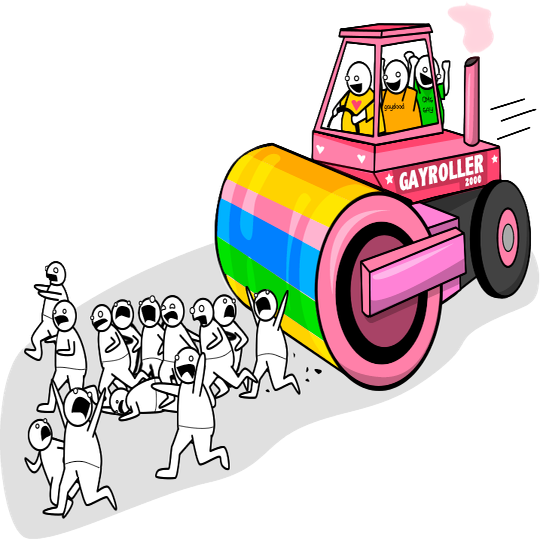I’m not sure if this is the best place but I don’t know where else I could talk about something like this. I know that my style of masculinity is toxic but I’ve never gotten good advice on how to overcome it as a trans man.
The assumption that trans men don’t have toxic masculinity because “they got socialized as women” is a common one in trans spaces and not only does it not apply to me, the implication that trans men are softer men pisses me off and digs me deeper.
Lore time: I internalized masculine norms throughout my isolated childhood. I knew and insisted I was a boy from an early age and my behaviour got me isolated and bullied by my female peers. I was also mistreated a lot for being queer.
My main problem is being insecure because of dysphoria combined with the transphobia I’ve received, pushing me to toxic competitive behaviour that runs the risk of alienating my friends. However, compared to the attitudes I’ve faced and still face in real life, affirmation from queer spaces about how men don’t need to be one way feel detached from reality. How can I not be insecure when I’ve been bullied for my whole life and none of that would’ve happened if my body wasn’t female? If I said that doesn’t matter wouldn’t it be cope?
Tl;dr what do when toxically masculine as a trans man in very transphobic irl corcumstances? I would especially appreciate examples of masculine-presenting men who didn’t engage in masculinity as a competition. If post is too big wall of text or just too many personal details tell me and I’ll trim.


I’m AMAB and now trans-NB but I used to be a CIS man struggling with insecure masculinity. I first discovered gender bending when I was cross-dressed by the leatherdykes I was living with. They’d put me into skirts and blouses and I feel an immediate transformation — I’d become quieter, more passive, and I’d spend most of my time cleaning after them and washing the dishes.
They complained at first about my behavior. “We think it’s problematic that your idea of a women is cleaning and washing dishes.” Which is true, that’s problematic. But they let is slide, they said, because they were getting free cleaning and dish washing.
It took me a lot of reflection to realized that my inner woman, because she was never expressed, had also never had a chance to develop through the discovery of feminism. It took me many years and a lot of feminist study to raise that part of my consciousness. It took another two decades for me to then start to deconstruct gender entirely and transition. It was a wild ride.
In short, it’s perfectly understandable to have an underdeveloped, under-socialized gender identity when first transitioning. And being aware of it puts you way ahead of most men who never question their toxicity. It will take patience and study to undo a lifetime of gender indoctrination and find your own expression.
In my work to be a better, more ethical man, I got into the New Age Man movement. This was decades ago and included work like Iron John by Robert Bly. This is some old-school shit and I don’t think it was very useful. I’ve had some contact with modern men’s movement (not MRA!) folks that lead me to believe it hasn’t improved much. I found it mostly a sort of “kinder, gentler” toxicity.
Honestly the book that I feel liberated me most was bell hook’s Feminism is for Everybody. hooks spends considerable thought on the impact of patriarchy on men. I no longer identify as male, but if you do and want to untoxify it, I highly recommend hooks.